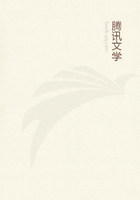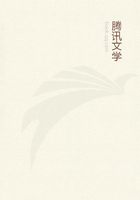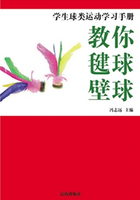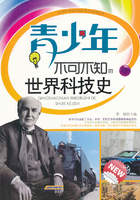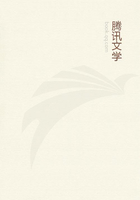And how does the secondarily good [the imaged Good] derive from The Good, the Absolute? What does it hold from the Absolute Good to entitle it to the name?
Similarity to the prior is not enough, it does not help towards goodness; we demand similarity only to an actually existent Good:
the goodness must depend upon derivation from a Prior of such a nature that the similarity is desirable because that Prior is good, just as the similarity would be undesirable if the Prior were not good.
Does the similarity with the Prior consist, then, in a voluntary resting upon it?
It is rather that, finding its condition satisfying, it seeks nothing: the similarity depends upon the all-sufficiency of what it possesses; its existence is agreeable because all is present to it, and present in such a way as not to be even different from it [Intellectual-Principle is Being].
All life belongs to it, life brilliant and perfect; thus all in it is at once life-principle and Intellectual-Principle, nothing in it aloof from either life or intellect: it is therefore self-sufficing and seeks nothing: and if it seeks nothing this is because it has in itself what, lacking, it must seek.It has, therefore, its Good within itself, either by being of that order- in what we have called its life and intellect- or in some other quality or character going to produce these.
If this [secondary principle] were The Good [The Absolute], nothing could transcend these things, life and intellect: but, given the existence of something higher, this Intellectual-Principle must possess a life directed towards that Transcendent, dependent upon it, deriving its being from it, living towards it as towards its source.The First, then, must transcend this principle of life and intellect which directs thither both the life in itself, a copy of the Reality of the First, and the intellect in itself which is again a copy, though of what original there we cannot know.
17.But what can it be which is loftier than that existence- a life compact of wisdom, untouched by struggle and error, or than this Intellect which holds the Universe with all there is of life and intellect?
If we answer "The Making Principle," there comes the question, "making by what virtue?" and unless we can indicate something higher there than in the made, our reasoning has made no advance: we rest where we were.
We must go higher- if it were only for the reason that the maker of all must have a self-sufficing existence outside of all things-since all the rest is patently indigent- and that everything has participated in The One and, as drawing on unity, is itself not unity.
What then is this in which each particular entity participates, the author of being to the universe and to each item of the total?
Since it is the author of all that exists, and since the multiplicity in each thing is converted into a self-sufficing existence by this presence of The One, so that even the particular itself becomes self-sufficing, then clearly this principle, author at once of Being and of self-sufficingness, is not itself a Being but is above Being and above even self-sufficing.
May we stop, content, with that? No: the Soul is yet, and even more, in pain.Is she ripe, perhaps, to bring forth, now that in her pangs she has come so close to what she seeks? No: we must call upon yet another spell if anywhere the assuagement is to be found.
Perhaps in what has already been uttered, there lies the charm if only we tell it over often? No: we need a new, a further, incantation.
All our effort may well skim over every truth and through all the verities in which we have part, and yet the reality escape us when we hope to affirm, to understand: for the understanding, in order to its affirmation must possess itself of item after item; only so does it traverse all the field: but how can there be any such peregrination of that in which there is no variety?
All the need is met by a contact purely intellective.At the moment of touch there is no power whatever to make any affirmation;there is no leisure; reasoning upon the vision is for afterwards.We may know we have had the vision when the Soul has suddenly taken light.This light is from the Supreme and is the Supreme; we may believe in the Presence when, like that other God on the call of a certain man, He comes bringing light: the light is the proof of the advent.Thus, the Soul unlit remains without that vision; lit, it possesses what it sought.And this is the true end set before the Soul, to take that light, to see the Supreme by the Supreme and not by the light of any other principle- to see the Supreme which is also the means to the vision; for that which illumines the Soul is that which it is to see just as it is by the sun's own light that we see the sun.
But how is this to be accomplished?
Cut away everything.
FOURTH TRACTATE.
HOW THE SECONDARIES RISE FROM THE FIRST:
AND ON THE ONE.
1.Anything existing after The First must necessarily arise from that First, whether immediately or as tracing back to it through intervenients; there must be an order of secondaries and tertiaries, in which any second is to be referred to The First, any third to the second.
Standing before all things, there must exist a Simplex, differing from all its sequel, self-gathered not inter-blended with the forms that rise from it, and yet able in some mode of its own to be present to those others: it must be authentically a unity, not merely something elaborated into unity and so in reality no more than unity's counterfeit; it will debar all telling and knowing except that it may be described as transcending Being- for if there were nothing outside all alliance and compromise, nothing authentically one, there would be no Source.Untouched by multiplicity, it will be wholly self-sufficing, an absolute First, whereas any not-first demands its earlier, and any non-simplex needs the simplicities within itself as the very foundations of its composite existence.

